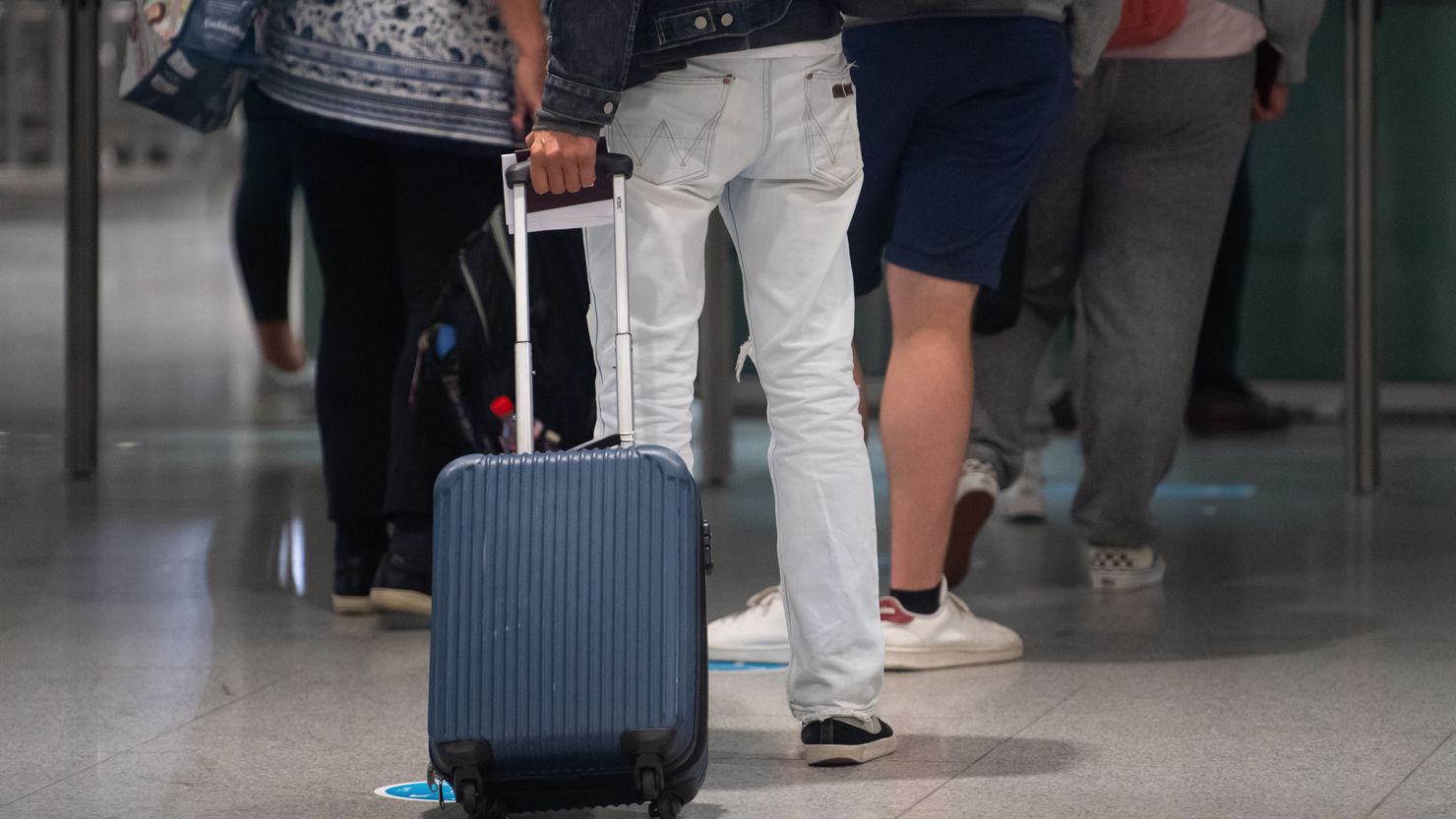Editor’s Note: Alane Izu is a senior statistician at the University of the Witwatersrand Vaccine and Infectious Disease Research Unit (WITS-VIDA). Shabir A. Madhi is a professor of vaccinology, dean of the Faculty of Health Sciences at the University of the Witwatersrand, director of WITS-VIDA and co-director of the African Leadership in Vaccinology Expertise. The opinions expressed here are those of the authors. View more opinion on CNN.
On November 24, the Network for Genomic Surveillance in South Africa identified a new coronavirus variant of concern, dubbed Omicron. Since the variant’s initial identification in South Africa, it has been discovered in a number of countries spanning multiple continents, and on Wednesday, the first case of Covid-19 caused by this variant was reported in California.


Two days after news of Omicron’s existence was announced, after it had also been detected in Hong Kong and Botswana, the UK issued a travel ban on all foreign travelers from South Africa and a handful of neighboring nations with more than 20 countries, including the US, following suit in some form. This felt like a slap on South Africa’s wrist – and one that will likely hurt the South African people while providing little protection from Omicron to the rest of the world. South Africa should not be punished for being quick to identify the variant and notify the world of its presence. The promises heads of states made at the G20 summit in October to be collaborative in rebuilding the world tourism sector have seemingly been disregarded – and these travel restrictions are a misguided result.
To date, South Africa has identified two variants of concern. This is thanks to the advanced genomic surveillance system established in May 2020, created to provide rapid sequencing in order to understand the behavior of the virus and ultimately inform policy. Shortly after the travel bans were implemented by many countries, the variant was identified in Japan, Brazil, multiple European countries, and on Wednesday it was identified in the US.
Nonetheless, it is South Africa and its surrounding nations that are being hit particularly hard by travel restrictions. This begs the question, if Omicron cases had first emerged in a North American or Western European nation, would similar travel bans have been implemented? Or is it South Africa’s geography and relatively lower GDP that makes it the target of these restrictions, despite the service we provided to the world by sounding an alarm as early as possible about this new variant?
Travel bans and restrictions that were first used to contain the spread of Covid-19 were largely unsuccessful, except in island nations like Australia and New Zealand, which closed their borders to the rest of the world during the early stages of the pandemic. On a whole, the world realized that the spread of the virus could not be contained.
As the pandemic raged on and coronavirus variants emerged, travel restrictions were imposed in an attempt to delay or control their importation from one country to the next. This was often too late, as variants were identified only after dispersion had occurred.
While delaying the spread of variants could buy countries a little time to better prepare their health care systems, travel restrictions create economic loss, particularly for countries that rely heavily on income associated with tourism. As it stands, nearly two years into the pandemic, high-income nations have many of the necessary public health resources in place to combat Covid-19, as well as readily available vaccines. The benefit of minimizing the spread of Omicron in these nations through travel bans does not outweigh the economic cost to South Africa and other banned nations.
Many economies of lower-middle-income countries in the global South heavily rely on December tourism from the UK, Europe and the US. Just before the pandemic hit, tourists spent R116.9 billion (about $7.34 billion in US terms) in South Africa in a year, according to the South African Tourism Annual Report. And, as Tshifhiwa Tshivhengwa, CEO of Tourism Business Council of South Africa, told us, preliminary indications are that over R1 billion worth of bookings have already been canceled since the announcement of the UK’s travel restrictions. This is only the surface of the economic impact and does not include money travelers would have spent at restaurants, gift shops or on transport and other day-to-day expenditures.
Get our free weekly newsletter
Decisions about global travel and Covid safety need to be informed by reliable data. We, as a world, need to search for solutions that work, instead of relying on last year’s solution that we know do not. When President Joe Biden and others say the travel ban is necessary to buy the US time to better understand the variant, they are being oblivious to the impact that such unscientific actions have on the livelihoods of millions in the affected countries. All that these travel bans will do is push these countries further into economic chaos.

